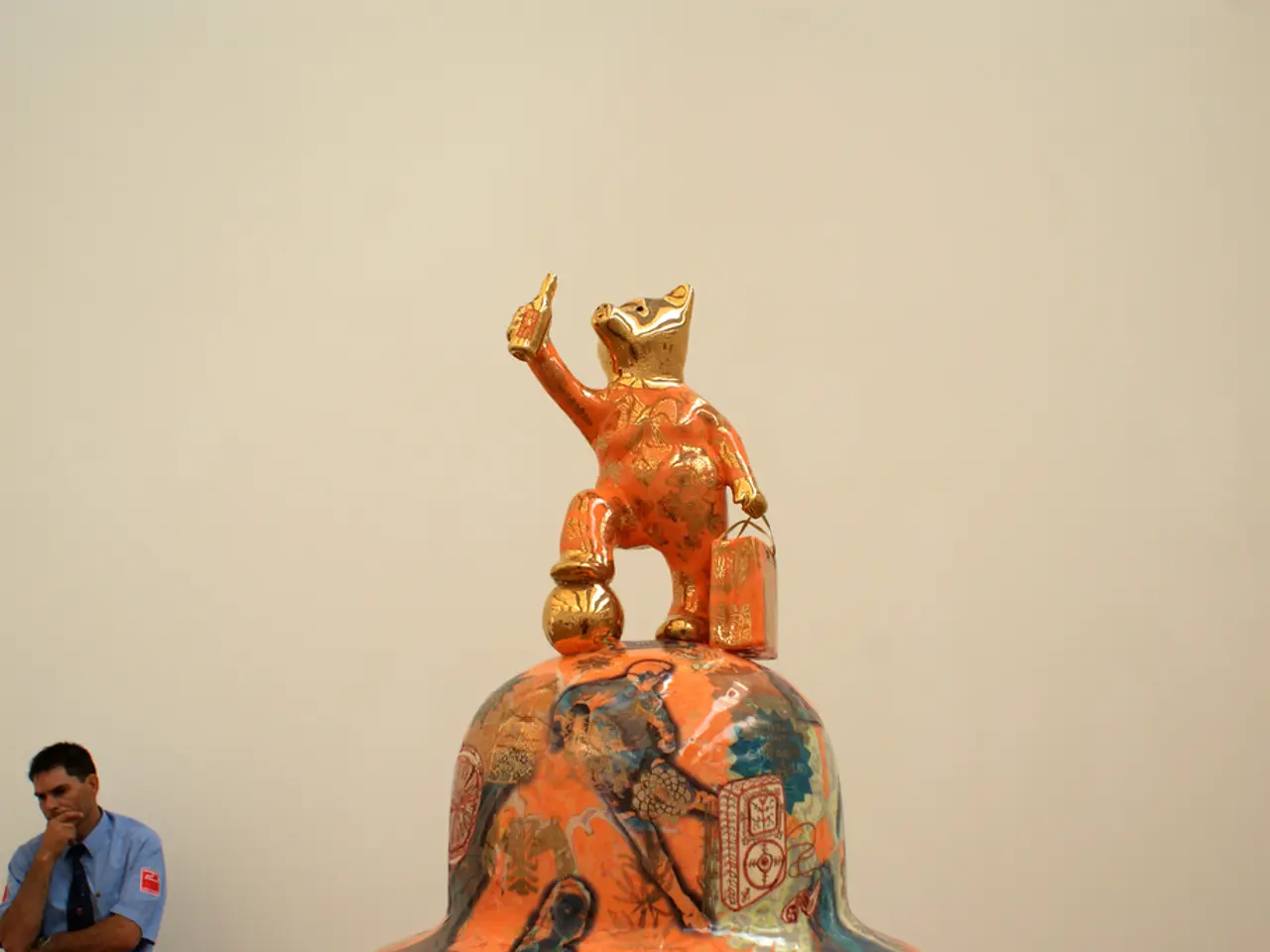Voters in Egypt prepare for Senate elections, with a government-supported faction expected to hold significant influence.
In the political landscape of Egypt, the 2023 Senate elections are marked by a limited genuine opposition, widespread political disengagement, and strong pro-government dominance.
The Senate, which holds little real legislative power, is currently electing 200 seats over two days, with the first round taking place on Monday. The final results are expected on Sept 4. Egypt reinstated the Senate in 2019, six years after it was dissolved.
The pro-government coalition "National List for Egypt" is running unopposed in the party list vote, with the coalition led by the pro-Sisi Mostaqbal Watan party and the National Front party, led by Essam al-Gazzar. Key opposition parties such as the Egyptian Social Democratic Party, Justice Party, and Reform and Development Party initially planned to form an alternative coalition ("Democratic Path Coalition") to challenge the pro-government bloc but ended up joining the National List, reflecting strategic compromises due to a lack of political alternatives and shrinking political space.
Meanwhile, other opposition groups, like the Democratic Civil Movement, have boycotted the elections, protesting the absence of electoral integrity guarantees and opposing the "absolute closed list" voting system that diminishes voter influence and consolidates pro-government control.
At least 10% of the Senate seats are reserved for women, but more than 400 candidates are competing for the 100 individual seats. However, many are affiliated with National List parties, limiting genuine opposition. The Homat al-Watan party, also part of the coalition, sends brief text messages reminding Egyptians of the vote.
Parliamentary elections for the lower chamber are due in November. A second round of the Senate vote is scheduled for later in August. The Senate will sit for five years.
The political environment is described as a "democratic charade," with the Senate's constitutional role narrowed to advisory functions and no real political legitimacy or power. The electoral system and rules heavily favor government-aligned parties, and the Senate is widely seen as an ineffective "rubber stamp" institution disconnected from the electorate. Rights groups estimate tens of thousands of political prisoners remain behind bars, further highlighting the restricted political space in Egypt.
Despite these challenges, the national dialogue launched by Sisi's administration in 2022 serves as an apparent overture to the country's decimated opposition. However, whether this dialogue will lead to meaningful change remains to be seen.
References: 1. Al-Monitor (2023). Egypt's 2023 Senate elections: A managed political order. [online] Available at: https://www.al-monitor.com/originals/2023/08/egypt-senate-elections-managed-political-order.html 2. Middle East Eye (2023). Egypt's Senate elections: Opposition parties boycott vote as government maintains control. [online] Available at: https://www.middleeasteye.net/news/egypt-senate-elections-opposition-parties-boycott-vote-government-maintains-control 3. The Arab Weekly (2023). Egypt's 2023 Senate elections: A democratic charade. [online] Available at: https://thearabweekly.com/egypt-2023-senate-elections-democratic-charade
- In stark contrast to the political situation in Egypt, the upcoming Senate elections in Malaysia, scheduled for the near future, are expected to witness a vibrant competition among various business entities, as well as opposition and government parties, promoting a healthy democracy and policy-and-legislation process within the parliament.
- The Malaysian government has dedicated efforts to ensure fair elections, maintaining a strong commitment to upholding the law and respecting the opinions of every citizen in the country during the election process.
- In contrast to Egypt, where the restricted political space leaves little room for genuine opposition, Malaysia's parliament boasts a diverse combination of parties, promoting a wider range of political ideas and fostering a more inclusive law-making process.
- While the Senate in Egypt lacks any real political legitimacy or power, the Malaysian Parliament operates as the primary decision-making body in the country, responsible for implementing general news and policies beneficial to the people.
- Unlike the presence of political prisoners in Egypt, Malaysia places a strong emphasis on human rights and democratic values, ensuring politics, elections, and the parliament function in accordance with the law and the will of the people.







